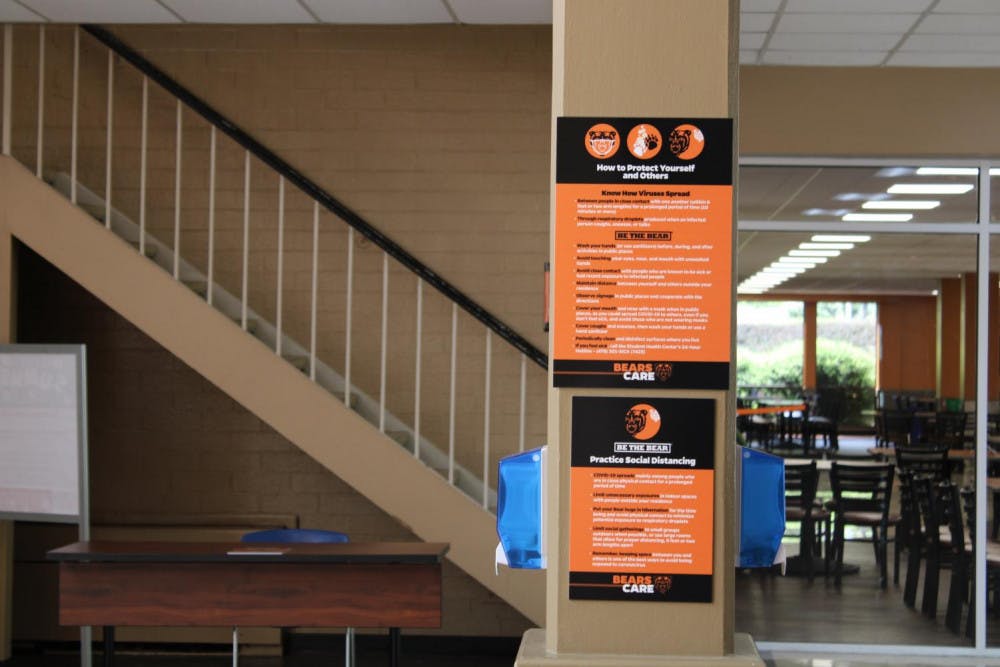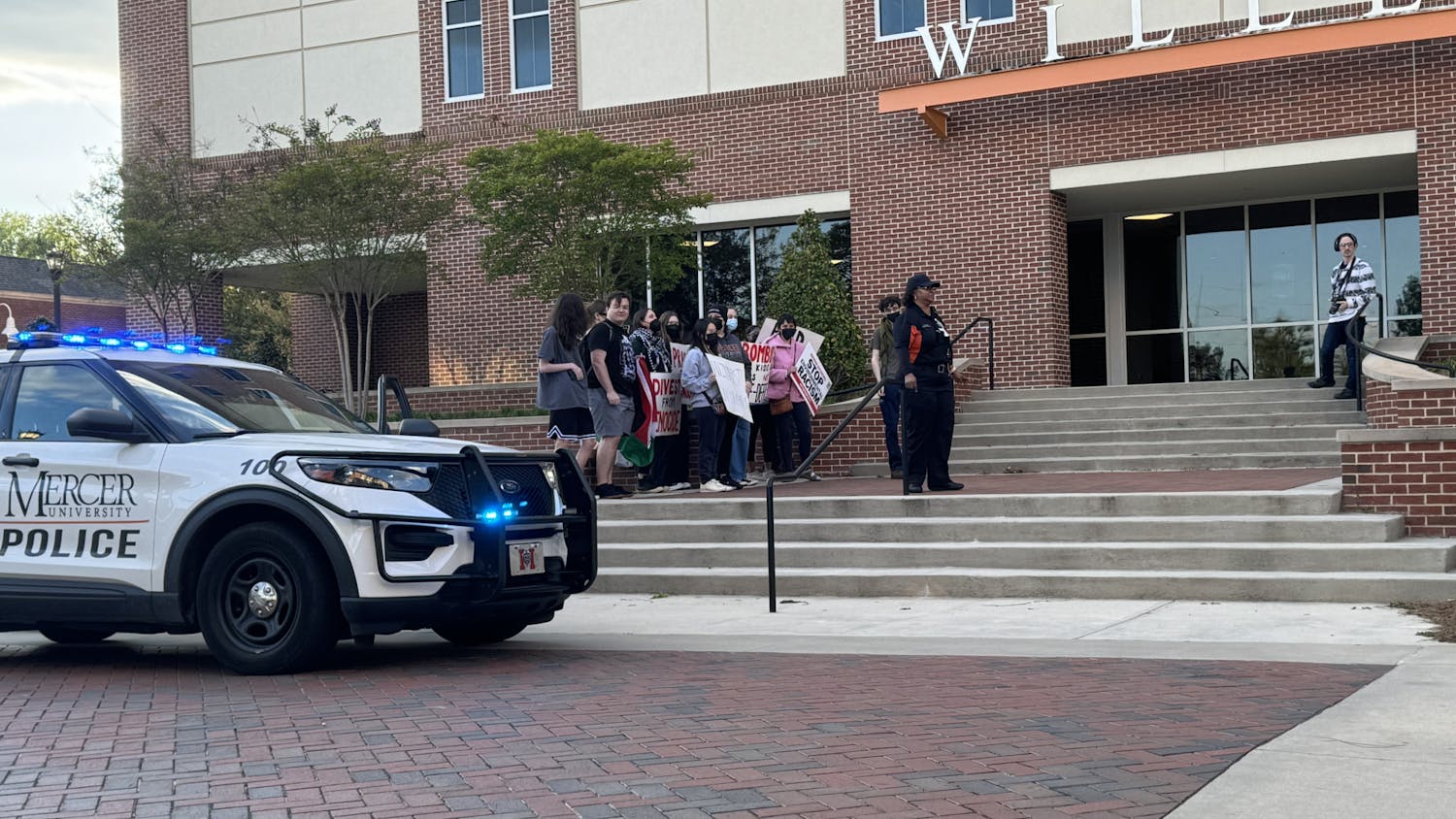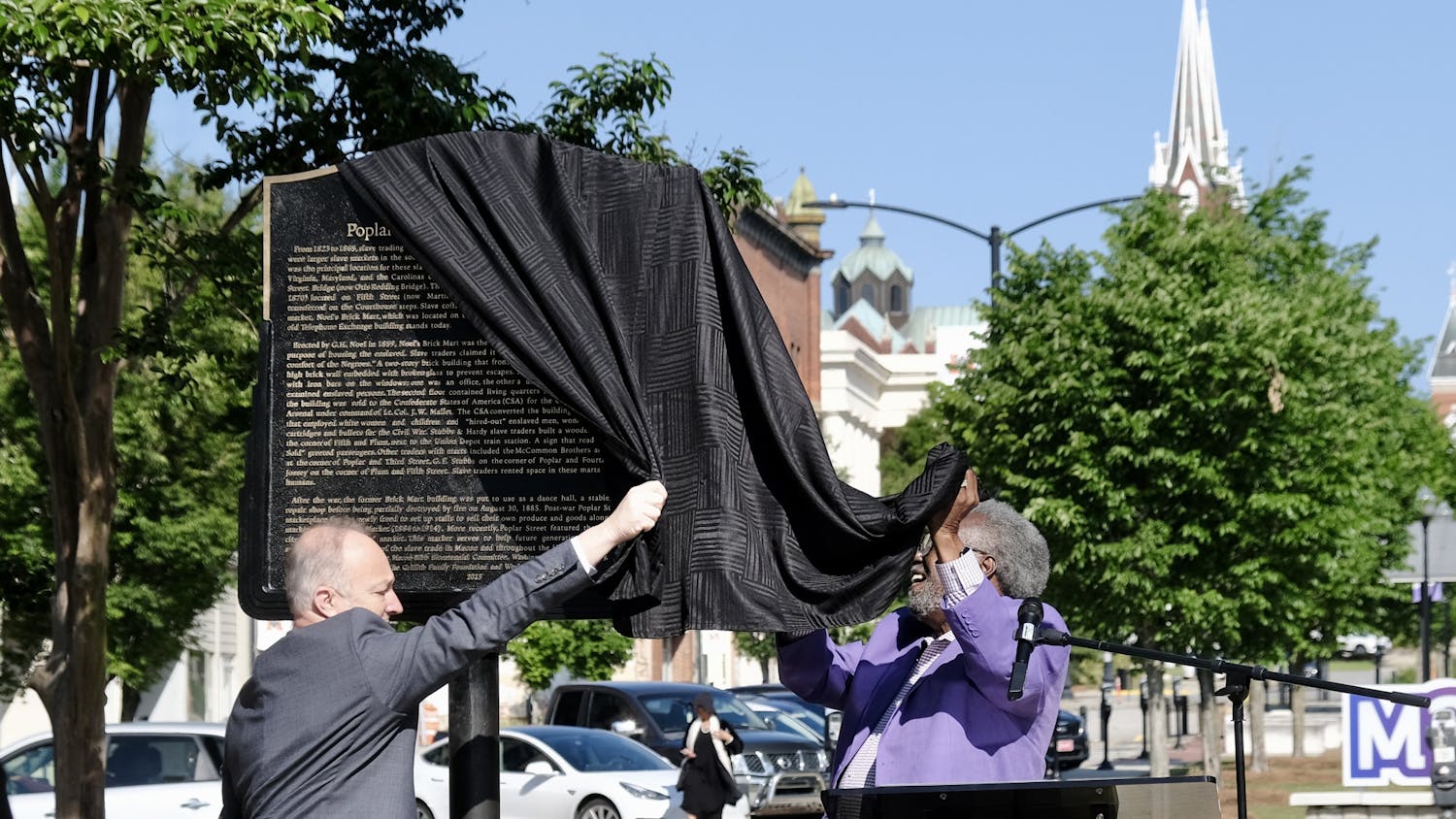The coronavirus pandemic has thrown a cloud of financial doubt over many colleges and universities across the United States — and Mercer University is no exception.
When colleges and universities had to send their students home last March as the reality of the pandemic began to sweep the nation, it added financial considerations that universities nationwide had not prepared for.
“It's inserted a great deal of uncertainty,” Mercer’s Executive Vice President for Administration and Finance James Netherton said. “What kind of money are we going to have to spend coping with COVID that we didn't budget for? … The list just goes on and on and on and on and on.”
When Mercer had to send students home, the university had to provide students compensation for unused food and housing, Netherton said. On top of that, the university spent a considerable amount of money preparing to reopen for the 2020-2021 school year in as safe a manner as possible.
But despite these new costs, Netherton said that the university seems on track to emerge from both the combined 2019-2020 and 2020-2021 school years “in the black” — meaning that the university did not spend more money than it had taken in. But how?
The financial impact of sending students home
In early March of 2020, Mercer University President Bill Underwood sent an email to Mercer students announcing a temporary transition to virtual learning as a COVID-19 safety precaution.
Mercer kept its campus open so that students who had nowhere to go or who were safer on campus could stay until the end of the school year. Ultimately, the plan was to reassess the situation on April 3 and decide whether to resume in-person classes or remain online.
It was only March 28 when the University informed students and faculty of their decision to continue virtual learning for the rest of the semester. At the same time, President Underwood mentioned in an email that there were tentative plans “to reimburse students for unused and university housing.”
Netherton told The Cluster that Mercer provided $3.1 million “in housing and dining and lab fee refunds” as compensation for the time students didn’t spend on campus or in labs.
Keeping places like the Fresh Food Company — known as “the caf” — open for the 300 or so students remaining on campus until the end of the school year “was a money loser,” but Netherton said that students were the most important thing.
In spite of the unexpected losses caused by student refunds and keeping facilities open, Mercer ended the 2019-2020 fiscal year with a surplus. The university received about $2.6 million in federal CARES Act funds, according to Netherton, which covered a portion of the student refunds.
There was another incoming bit of money that was wholly unexpected: unspent travel advances. Travel advances had been taken out by many people for planned trips, such as for conferences. When COVID-19 overwhelmed the world, those trips were canceled. In June, all of that unspent money was returned to the University.
“People had gotten travel advances saying, ‘I'm going to go on this approved trip,’” Netherton said. “And guess what? They didn't turn all that money in until the last week in June. I don't blame them. I'm not complaining, I'm just saying that was a surprise.”
There was an additional “surprise,” Netherton said, in the form of health insurance costs. Elective surgeries were canceled and patients stopped visiting doctors as frequently, which enabled the University to save money on health insurance as costs went down, Netherton said.
“There are lots of other things,” Netherton said. “I mean, you take something this big, this complex — there are lots of moving parts.”
Netherton said that the university ended the 2019-2020 year strong, in part due to federal aid from the CARES Act as well as unexpected decreases in expenditures in areas such as travel and health care. This meant that, despite all the challenges imposed by the coronavirus pandemic, the university ended the school year with a modest surplus.
“It turned out — in spite of everything — to be the best year that we have had,” Netherton said. “But it did not look that way in May.”
The cost of Mercer’s return
Even though Mercer ended last school year without losing money, the 2020-2021 school year still faces many uncertainties in terms of what the university's balance sheets will look like at the end of the school year.
That being said, if the university ends the 2020-2021 school year losing money, Netherton said that he thinks that is perfectly okay considering the university's surplus last year.
“Quite frankly, I'm looking at these two years together — last year and this year,” Netherton said. “Hopefully, we can run in the black both years. But if you put them together, as long as we run in the black over that two-year period, I'm gonna be good with it.”
For the 2020-2021 school year, Netherton indicated that the university’s projections suggest that the financial costs of reopening during the pandemic may be smaller than they had previously anticipated.
“This year, we went from projecting a seven figure deficit to having a very small deficit,” Netherton said.
Despite possibly losing money, Netherton thinks that many of these expenses are important for Mercer's return to in-person instruction. For example, Netherton points to the two floors of hotel space that Mercer rented out as isolation space for students who test positive for COVID-19.
“We're spending money to rent two floors of a hotel for isolation space for a semester. That was not cheap,” Netherton said.
Even though Mercer has “perfectly safe” isolation housing in the basement of one of Mercer’s residence halls, that still causes concerns for students, Netherton said.
“But even though that's perfectly safe, that scares people. If we put them off campus, then (students have) peace of mind,” Netherton said. “We had no idea (how much space) we were going to need, but we had to make the commitment in order to make it work.”
On top of acquiring additional housing for isolation spaces, Mercer also spent considerable financial resources investing in their COVID-19 testing lab, temperature-checking devices for classrooms and other spaces, providing all students Bears Care kits, as well as buying and installing hand sanitizer dispensers across campus. All of this costs money.
Additionally, as a result of the coronavirus pandemic’s impact on unemployment, Mercer is also putting resources into marketing Mercer’s working adult program, Netherton said.
“When more people become unemployed, a lot of times they say, 'All right, I think I'll go back to school and try to increase my credentials,'” Netherton said. “‘So when the job market picks up, I will be able to show that I've been in school rather than just being unemployed and be in a better position.’”
Netherton noted that the increased marketing towards the working adult program has “paid off well enough” that Netherton “committed another chunk of money” to the university’s marketing of those programs. But Netherton said that the continued success of that initiative — and other efforts — depend on a lot of uncertainties.
“I've got all sorts of scenarios, depending on circumstances that we don't control, and I'm trying to plan for them and be prepared to cope with them,” Netherton said.
This story is part of a series exploring Mercer’s finances. If you have any questions regarding how Mercer uses its money, please email us at newseditorcluster@gmail.com.





